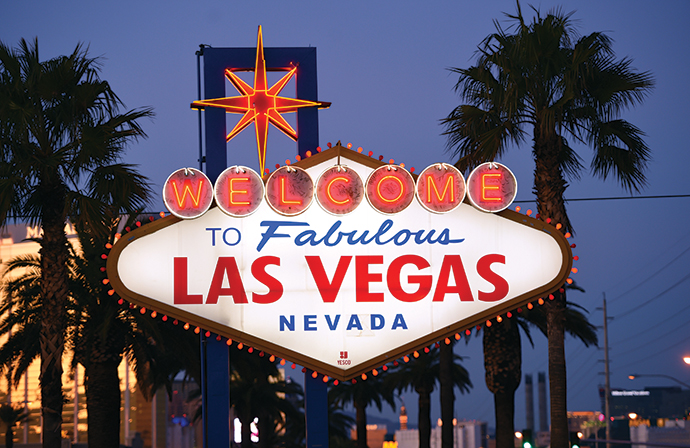Some states try to win corporate facility expansion projects by outbidding their competition with expensive incentive offers. In Nevada, exactly the opposite is the case. Because Nevada’s overall tax environment is so business-friendly, the state is able to woo companies with more sensible incentive packages that don’t break the taxpayers’ bank.
For those who advocate a fiscally conservative approach to governing — which would include just about every business — Nevada serves up the perfect recipe for success.
The state’s pro-business climate, recently named Best in the West by Chief Executive magazine, begins with a healthy dose of the word “no” — as in no personal income tax, no franchise tax, no unitary tax, no inventory tax, no inheritance tax and no estate tax. The Tax Foundation recently ranked Nevada as having the ninth-best State Business Tax Climate in the country.
Nevada, like Ohio, Texas and Washington, imposes a gross receipts tax instead of a corporate income tax. For qualifying companies making the decision to expand in the state, the Nevada Governor’s Office of Economic Development has the statutory authority to award competitive incentives. The ones most commonly used in Nevada include:
- Sales and Use Tax Abatement: Sales and use tax abatement on qualified capital equipment purchases, with reductions in the rate to as low as 2%.
- Modified Business Tax Abatement: An abatement of 50% of the 1.475% rate on quarterly wages exceeding $50,000.
- Personal Property Tax Abatement: An abatement on personal property not to exceed 50% over a maximum of 10 years.
- Real Property Tax Abatement for Recycling: Up to 50% abatement for up to 10 years on real and personal property for qualified recycling businesses.
- Data Center Abatement: An abatement up to 75% for personal property and reduction of sales tax to 2%.
- Aviation Parts Abatement: Personal property tax abatement up to 50% and sales and use tax reduction to 2%.
- Silver State Works Employee Hiring Incentive: Employers can receive as much as $2,000 for each state-qualified employee hired.
With the assistance of the Las Vegas Global Economic Alliance, five companies set to relocate or expand in Southern Nevada were approved recently by Nevada GOED for state incentives.
“Nevada continues to be a destination for companies that would like to relocate to a business-friendly state with workers that have the skills needed for today’s advanced manufacturing and high-tech industries,” said GOED Deputy Director Kris Sanchez. “Small businesses in Nevada are also taking advantage of the great opportunities available to them and expanding their operations in the state to reach customers nationwide and worldwide.”
“Nevada continues to be a destination for companies that would like to relocate to a business-friendly state with workers that have the skills needed for today’s advanced manufacturing and high-tech industries.”
Nevada is further able to help small businesses grow through the State Trade Expansion Program (STEP) Grant administered by the U.S. Small Business Administration. The purpose of the grant is to help Nevada Eligible Small Business Concerns (ESBCs) enter or expand into export markets. Award amounts typically will be between $2,500 and $10,000.
Nevada is also able to help employers train their workers through the Workforce Innovations for a New Nevada (WINN) program. Since its inception, WINN has made more than $4 million in strategic investments to enable accelerated on-ramps to high-skill and high-wage jobs in Nevada.
A recent analysis of 15 leading high-tech locations in the country found that Las Vegas has the lowest annual high-tech firm operating costs, according to The Boyd Company Inc. Boyd also found that Las Vegas has the second-lowest annual corporate travel costs in the U.S.
Other factors besides costs play a role in corporate decision-making as well. One of them is lack of red tape. Nevada is known as being a state where both state and local governments are committed to streamlining approval processes and remaining a very low-regulation environment. It is also a state in which local and state government officials are easily accessible.
Nevada Gov. Steve Sisolak is firmly committed to supporting economic development, and that includes fully backing and funding Nevada GOED to assist any business that is relocating, expanding or starting up operations in the Silver State. Regional development authorities also support the state’s economic development with extensive local knowledge, resources and assistance.

